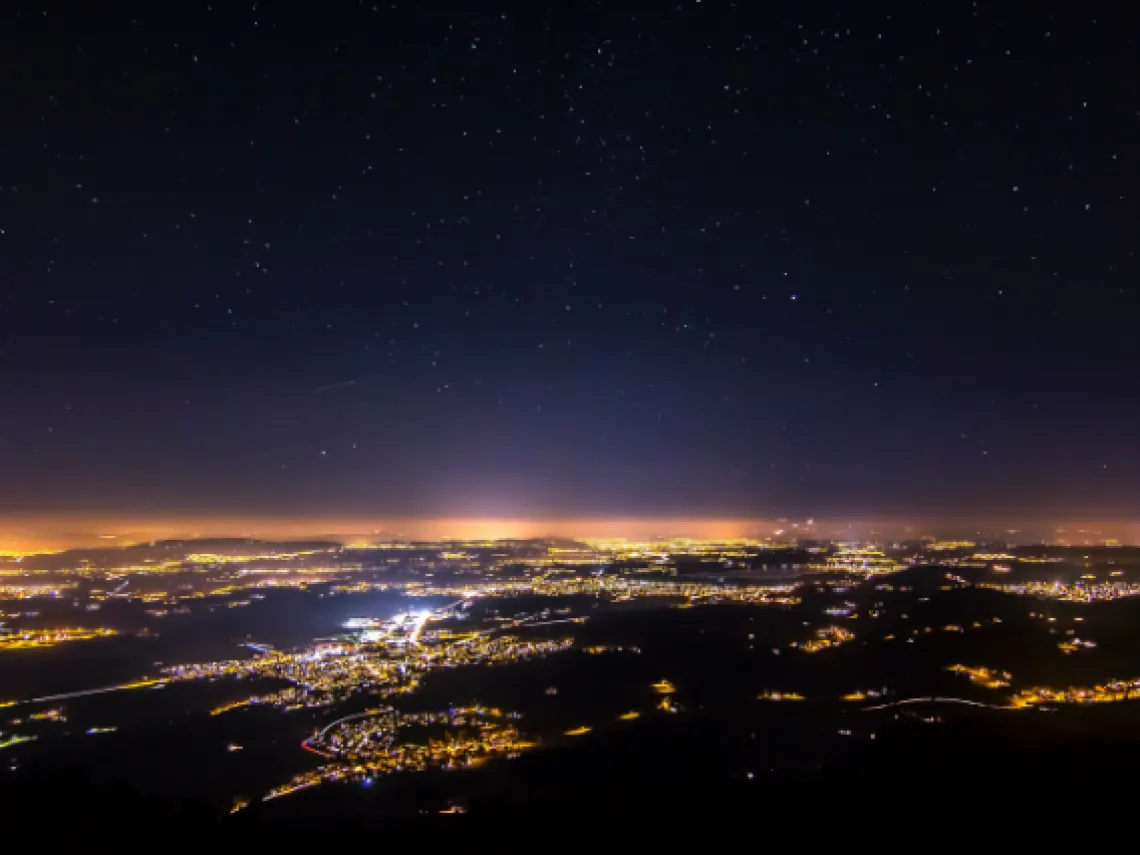Partnership Aims to Combat Light Pollution Through Development of Open-Access Database

Electricity powers our world, but there’s a dark side to illuminating the planet. Light pollution, designated as the excessive or inappropriate use of artificial light, has been shown to cause problems that affect human health, slow or stop the growth cycle of plants, decrease reproduction rates in animals, and veil the night sky. Now, a new interdisciplinary partnership aims to put a stop to the ever-growing problem.
A team from the University of Arizona College of Law’s Daniel F. Cracchiolo Law Library has partnered with the International Dark-Sky Association (IDA) and the University of Arizona College of Agriculture & Life Sciences (CALS) to develop an open-access database of statutes, regulations, ordinances, cases, and literature pertaining to light pollution in the United States and internationally. Through the tool the group hopes to empower populations around the world to protect their night skies.
Recent estimates indicate some regions of the world have experienced up to a 400% increase in the level of light pollution over the past 25 years. A global movement to reduce light pollution is being led by IDA, a Tucson-based organization that works to protect the night skies for present and future generations. Founded nearly 30 years ago, the association has programs throughout the world focused on preserving and protecting dark skies through responsible lighting policies and public education.
“This unique partnership will provide a central, comprehensive resource for individuals, policymakers, and industry, with the intention of reducing light pollution and promoting responsible outdoor lighting on an international scale,” says Ruskin Hartley, executive director of IDA.
The project will receive support from a team of developers in the CALS Cyber Communications and Technologies division led by Program Director Toby Torrey who will work to create the framework for the database itself while research experts from the Law Library, including Library Fellow Franceso Fasano will conduct data gathering.
“Our team is thrilled to be able to work with an internationally recognized organization and assist them in collecting the information they need to produce this tool,” explained Cynthia Condit, head of Faculty and Access Services who is leading the team from the Law Library. “We are excited to utilize our expertise in a way that will benefit our community and those around the world.”
University of Arizona Law has long been a leader in the field of environmental law and policy. Through the environmental law program and concentration, the college trains future environmental advocates and is closely involved in advancing environmental initiatives around campus including the NEPAccess program.
The 3-year partnership between IDA and the college kicked off this fall.
